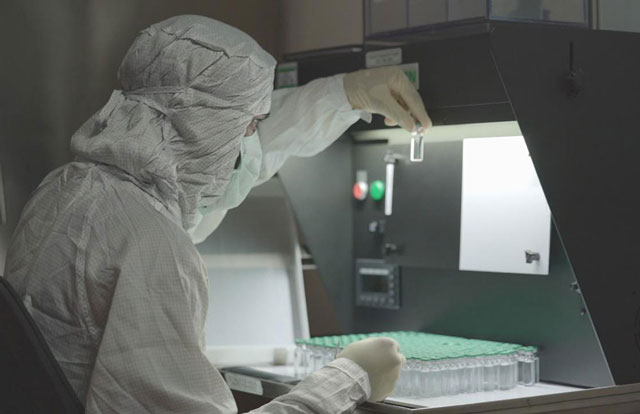
With a surge in funding, R&D and private sector investment, Africa is primed for a transformative leap towards vaccine autonomy. A recently announced US$1.8 billion shot in the arm puts vaccine self-sufficiency within reach.
SPECIAL REPORT | BIRD AGENCY | Recent approval by the Vaccine Alliance (Gavi) of a US$1.8 billion African Vaccine Manufacturing Accelerator (AVMA), a financing instrument that will support sustainable vaccine manufacturing in Africa is being hailed as a game changer for the continent.
“The targeted US$1 billion from Gavi to African manufacturers is a game changer for the continent and advances our efforts towards vaccine self-reliance,” said Jean Kaseya, Africa CDC Director General in a press statement from the Africa CDC.
The statement from Gavi on December 7 outlines the allocation: US $1 billion for vaccine manufacturing, US $500 million for the First Response Fund, ensuring swift pandemic financing, US $22 billion to fortify pandemic prevention, preparedness, and response, and US $290 million to aid countries in catching up on routine vaccinations and reaching children who missed out.
Gavi’s board will “consult widely on the final operational framework for AVMA” which is expected to be operationalized by June 2024, according to a statement.
The announcement follows a recent US$40 million initiative by the Bill & Melinda Gates Foundation to bolster mRNA vaccine production and access across Africa.
Fierce Pharma, a pharmaceutical news platform, reported that the Gates Foundation would spread the funding “between a Belgian biotech and a pair of African vaccine manufacturers as well as other, yet-to-be-named immunization production specialists.”
Speaking to bird story agency, Patrick Olilo, a genetic engineer at the Kenya Medical Research Institute, said “high capital costs required to set up infrastructure for large-scale production” limits local vaccine production.
Despite being the largest consumer of vaccines globally, Africa imports 99% of its vaccines and is heavily reliant on global producers, according to the WHO.
However, with increasing financial support, R&D focus, and heightened private sector engagement, this narrative is swiftly evolving.
Crucial initiatives targeting R&D improvements, described by Olilo as the “cornerstone of vaccine manufacturing,” are fast taking shape.
The African Union’s Center for Disease Control has revamped regional programs such as the Partnerships for African Vaccine Manufacturing Initiative (PAVMI) to fulfil 60% of the continent’s vaccine demand by 2040.
PAVMI was established in 2021 to boost the vaccine manufacturing ecosystem in Africa, targeting local production of 1.5 billion vaccine doses by 2040.
In March, PAVMI partnered with the Biomedical Advanced Research and Development Authority (BARDA) to train African vaccine manufacturing professionals at the Texas A&M National Center for Therapeutics Manufacturing in College, USA.
PAVMI seeks to facilitate the establishment of five vaccine research and manufacturing hubs on the continent over the next 10–15 years, according to the AU CDC website.
Collaborations and partnerships are also taking place in the research and development (R&D) arena. The Research Preparedness Program West Africa (RPPWA) is a collaboration between the Gambia, the Coalition for Epidemic Preparedness Innovations (CEPI) and the Korea-based International Vaccine Institute.
“The Programme’s first priority is to assist regional stakeholders in preparing clinical trial sites to conduct the first-ever Phase 2b and Phase 3 clinical trials of a Lassa fever vaccine in the region,” a press statement by CEPI explains.
Lassa fever is an acute viral hemorrhagic illness, endemic to parts of West Africa, including Sierra Leone, Liberia, Guinea and Nigeria.
Beyond regional initiatives, recent moves have led to a surge in private sector investments, from major pharmaceutical firms to smaller players, on the continent.
In Egypt, for instance, the government in July 2023 granted a ‘golden license’ special pass for the establishment of the largest scientific and regional R&D centre to locally manufacture all kinds of vaccines and export them across the African continent from Egypt, according to the Gennecs Group.
A relatively similar project is on course in the Ivory Coast, targeting the manufacture of anti-malaria drugs and antibacterial medicines. According to the International Finance Corporation (IFC), Fosun Pharma will have the capacity to produce 5 billion tablets annually.
As new players warm up to join the vaccine manufacturing space in Africa, initiatives rolled out by big pharma companies during and after the COVID-19 pandemic are also seeing the light of day.
In Rwanda, for instance, a BioNTech mRNA vaccine manufacturing plant launched in 2021 is complete and set for official launch “before the end of this year,” according to Sabin Nsanzimana, the Minister of Health quoted by The New Times.
Institut Pasteur in Dakar has also recently forged partnerships with significant players such as the Mastercard Foundation, the European Investment Bank, and others. This collaboration aims to bolster its vaccine manufacturing capabilities.
Concurrently, BioNTech from Germany is establishing an mRNA vaccine plant in Dakar, complementing ongoing developments at the Institut Pasteur de Dakar.
In East Africa, Moderna, a prominent American vaccine manufacturer, unveiled plans earlier this year to construct a facility in Kenya with a capacity to produce 500 million vaccine doses annually.
A 2022 white paper by the Clinton Health Access Initiative noted the region’s growing vaccine manufacturing potential. It was reported that 10 smaller-scale vaccine producers are scaling up production, while an additional 17 organizations have outlined plans to initiate vaccine manufacturing endeavours across the continent.
However, for Olilo, the biotechnology expert from KEMRI, issues around intellectual property and technology transfer must be addressed if local facilities are to be successful.
“It is essential to create robust regulatory structures and policies to guarantee the security and effectiveness of vaccines made locally,” he explained.
****
SOURCE: Bonface Orucho, bird story agency
 The Independent Uganda: You get the Truth we Pay the Price
The Independent Uganda: You get the Truth we Pay the Price



